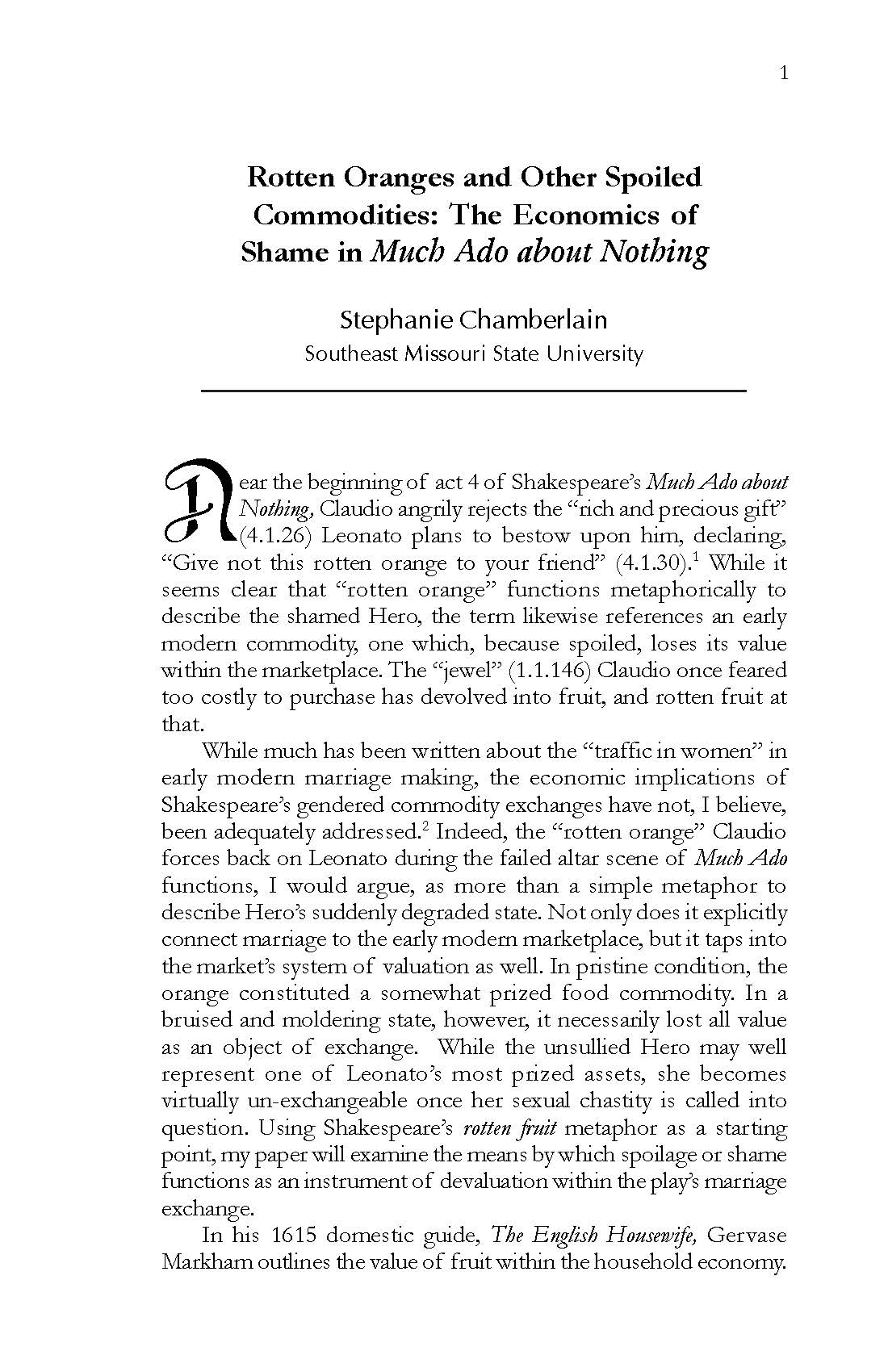Rotten Oranges and Other Spoiled Commodities: The Economics of Shame in Much Ado about Nothing
Main Article Content
Abstract
Near the beginning of act 4 of Shakespeare’s Much Ado about Nothing, Claudio angrily rejects the “rich and precious gift” (4.1.26) Leonato plans to bestow upon him, declaring, “Give not this rotten orange to your friend” (4.1.30).1 While it seems clear that “rotten orange” functions metaphorically to describe the shamed Hero, the term likewise references an early modern commodity, one which, because spoiled, loses its value within the marketplace. The “jewel” (1.1.146) Claudio once feared too costly to purchase has devolved into fruit, and rotten fruit at that.
Article Details
Section
Articles
